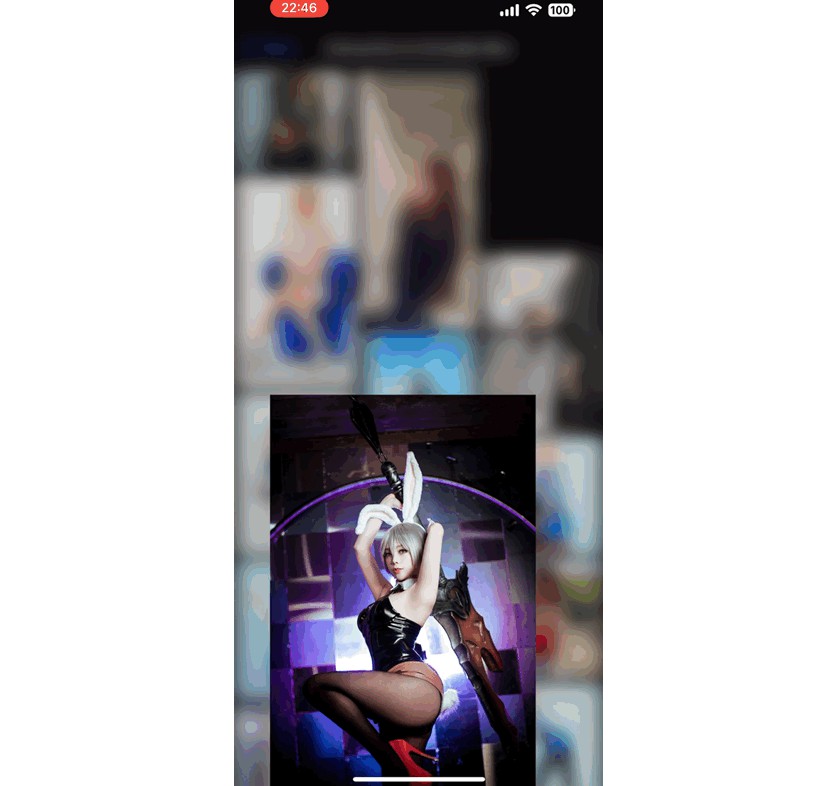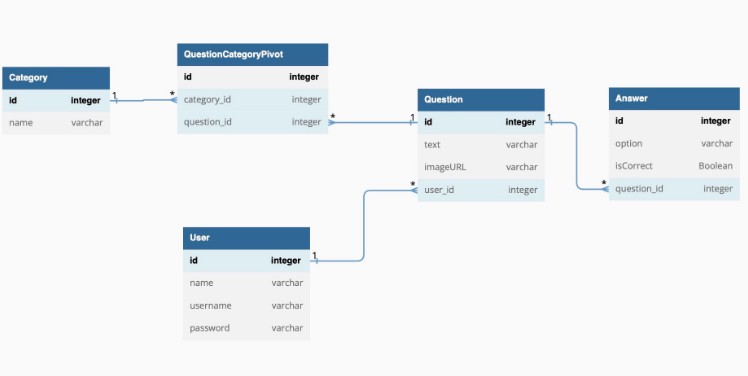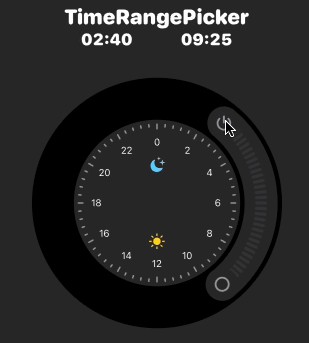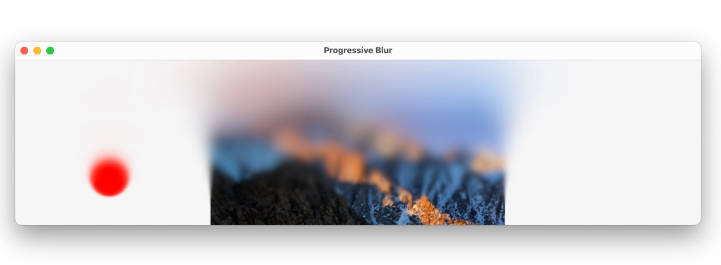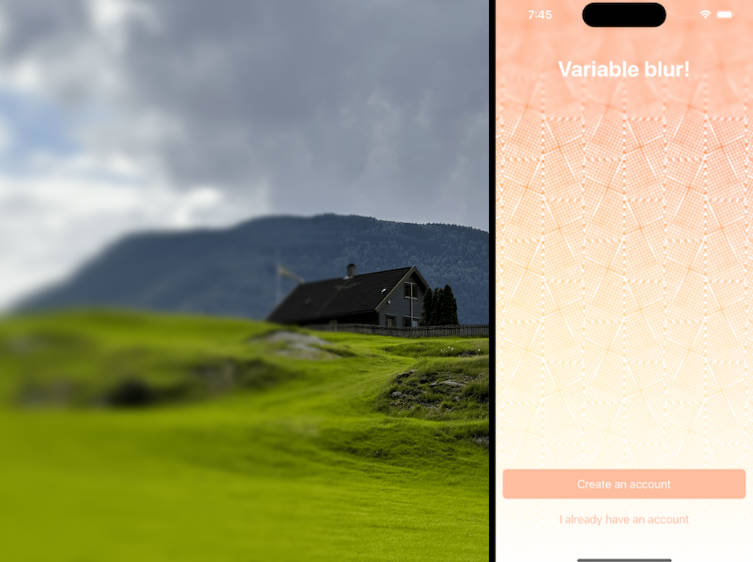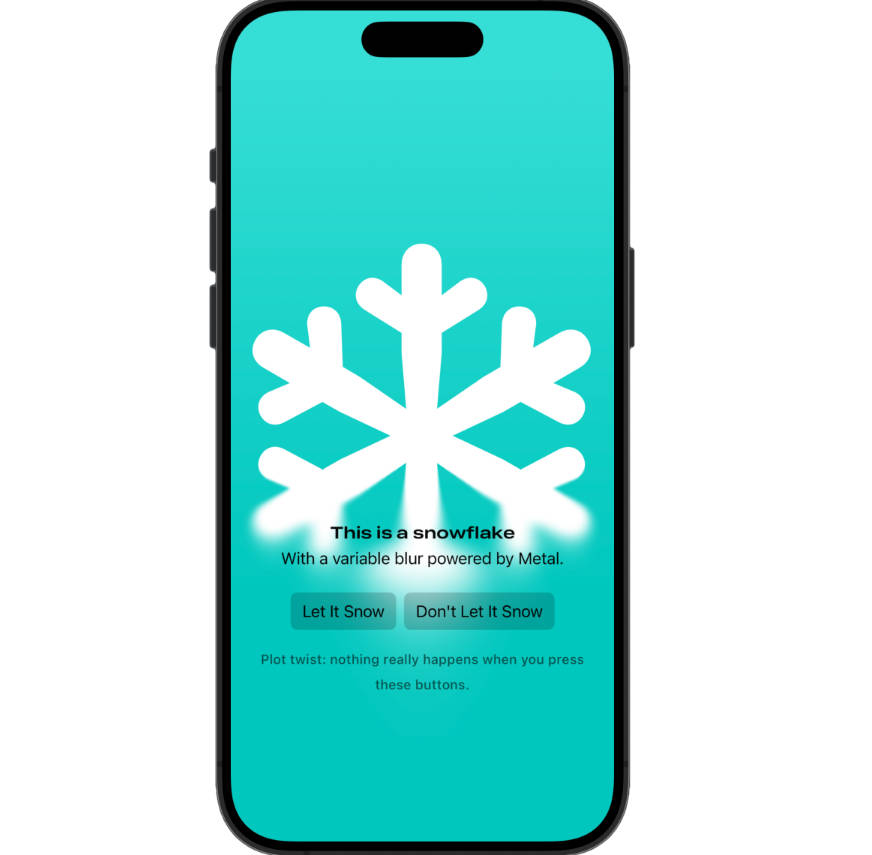JPBlurView & JPBlurAnimationView
JPBlurViewis aUIViewwith a blur effect and customizable blur intensity.JPBlurAnimationViewinherits fromJPBlurView, allows for animated modifications of the blur intensity.
JPBlurView
JPBlurView is a UIView with a blur effect and customizable blur intensity. Internally, JPBlurView encapsulates UIVisualEffectView to achieve the frosted glass effect, and utilizes UIViewPropertyAnimator to implement custom blur intensity.
The achieved effect looks like this:
It is very easy to use, the code is as follows:
// 1.Creating a blurView.
let blurView = JPBlurView(effectStyle: .systemThinMaterialDark)
// 2.Adding blurView to a parent view.
parentView.addSubview(blurView)
// 3.Layout the blurView using frame or auto layout.
blurView.frame = CGRect(x: 0, y: 0, width: 100, height: 100)
// 4.You can easily modify the blur intensity by modifying the intensity property!
blurView.intensity = 0.5
effectStyleis of type UIBlurEffect.Style and needs to be customized by you.- The
intensityhas a default initial value of 1, but you can pass a custom value to it in the constructor method. - The
intensityproperty ranges from 0 to 1, representing 0% to 100% blur intensity.
JPBlurView allows complete customization of the blur intensity and addresses the issue of becoming ineffective when entering the background mode. If you want to modify the blur intensity with animation effects, you can use JPBlurAnimationView.
JPBlurAnimationView
JPBlurAnimationView inherits from JPBlurView, allows for animated modifications of the blur intensity. It internally relies on the pop, enabling animated modifications of the blur intensity for a smoother transition effect.
The achieved effect looks like this:
Using JPBlurAnimationView is equally straightforward. Here’s the code:
let blurView = JPBlurAnimationView(effectStyle: .systemThinMaterialDark)
// Adding to a parent view and applying layout...
blurView.setIntensity(from: 0,
to: 1,
duration: 0.5,
timingFunctionName: .easeInEaseOut)
The animation implementation utilizes a combination of POPBasicAnimation and POPAnimatableProperty. Here is the meaning of the parameters:
- The
fromparameter represents the starting blur intensity value. Default isnil, which represents starting the animation from the current blur intensity. - The
toparameter represents the target blur intensity value. - The
durationparameter represents the duration of the animation. - The
timingFunctionNameparameter represents the name of the animation curve or timing function to be used during the animation. It defines the pace or rhythm of the animation over time, such as linear, ease-in, ease-out, ease-in-out, etc. Default isnil.
The animation effect will only be applied if the duration is greater than 0 and the from and to values are not equal. In this case, when the duration is positive and the starting and target blur intensities are different, the animation will be triggered, resulting in a smooth transition between the two blur intensity values.
Additionally, you can make use of this convenient API:
blurView.setIntensity(0.5, animated: true)
/// The equivalent to the above API would be:
// `blurView.setIntensity(from: nil, to: 0.5, duration: 0.3, timingFunctionName: nil)`
/// If the animated parameter is set to false, then it is equivalent to:
// `blurView.intensity = 0.5`
During the animation process, you can use the stopAnimation method to stop the animation. At the point when the animation is stopped, the blur intensity will be set to the value it had when the animation was stopped.
blurView.stopAnimation()
By using JPBlurAnimationView, you can achieve interactive and animated transition effects, such as closing an image with a gesture:
Installation
JPBlurView & JPBlurAnimationView is available through CocoaPods. To install it, simply add the following line to your Podfile:
# This includes both JPBlurView and JPBlurAnimationView, which relies on the pop library.
pod 'JPBlurView'
# This includes only JPBlurView.
pod 'JPBlurView/Base'
Author
Rogue24, [email protected]
License
JPBlurView is available under the MIT license. See the LICENSE file for more info.
